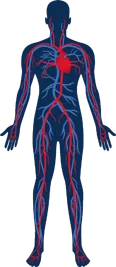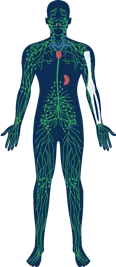- Home
- Browse by Disease
- Castleman disease
Castleman disease
- Other Names:
aflh; angiofollicular ganglionic hyperplasia; angiofollicular lymph hyperplasia; angiofollicular lymph node hyperplasia; angiolymphoid hyperplasia; angiomatous lymphoid hamartoma; benign angiofollicular hyperplasia; castleman's tumour; glnh; lymphoid hamartomaaflh; angiofollicular ganglionic hyperplasia; angiofollicular lymph hyperplasia; angiofollicular lymph node hyperplasia; angiolymphoid hyperplasia; angiomatous lymphoid hamartoma; benign angiofollicular hyperplasia; castleman's tumour; glnh; lymphoid hamartoma
Read More
Read Less









